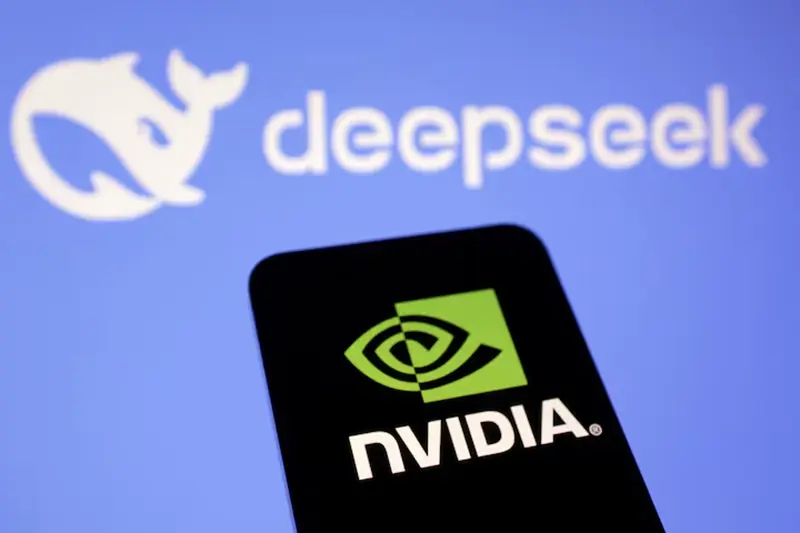Nvidia’s Earnings: A Crucial Indicator of AI Chip Demand Amid DeepSeek’s Spending Concerns – One America News Network
By Arsheeya Bajwa
February 24, 2025 – 3:58 AM PST
Advertisement

(Reuters) – Nvidia’s highly sought-after artificial intelligence chips are under the microscope as the company prepares to share its earnings results on Wednesday. Investors are questioning whether the significant investment in this tech continues to be justified following the emergence of affordable AI models from China’s DeepSeek, which has unsettled the sector.
As the second-most valuable company globally, Nvidia has reaped the rewards of an AI-driven spending surge from major tech firms over the last two years.
However, the assertion that DeepSeek’s AI models can compete with their Western counterparts at a significantly lower cost has led investors to reconsider the necessity of Nvidia’s advanced chips for maintaining an advantage in the AI landscape.
DeepSeek’s swift ascension in January caused Nvidia to experience a staggering $593 billion drop in market value, marking the largest one-day loss for any U.S. corporation. Its shares performed exceptionally well in 2023 and 2024.
“There is significant concern among investors regarding DeepSeek and its potential impact on demand,” noted Ivana Delevska, chief investment officer of Spear Invest, which manages an actively traded ETF that includes Nvidia shares.
“If Nvidia can demonstrate that it continues to ‘beat and raise’ expectations, it would bode well for the stock.”
Predictions suggest Nvidia will report a 72% increase in revenue, reaching $38.05 billion for its fourth quarter, according to LSEG data; this would mark its slowest growth in seven quarters. It is anticipated that the company will project a 60% revenue increase for the first quarter ending in April.
This contrasts with previous periods where the company’s revenue enjoyed five consecutive quarters of triple-digit growth until the end of October.
To date, demand for Nvidia’s AI chips remains robust. Major clients like Microsoft (MSFT.O) and Meta (META.O) have committed to continuing their high-level spending on data centers.
“Plans communicated by Meta, Microsoft, Google, and Amazon present a very optimistic outlook for Nvidia’s near-term demand,” stated John Belton, a portfolio manager at Gabelli Funds, which also holds Nvidia shares.
In addition, the shipment of Nvidia’s potent Blackwell chips is expected to have increased in the fourth quarter, which should enhance revenue but may also pressure margins due to the costs associated with ramping up production of this new and intricate chip.
Analysts project that Nvidia’s adjusted gross margin will decline by over three percentage points to 73.5% in the fourth quarter.
With the Blackwell series, Nvidia is evolving from selling individual chips to offering complete AI computing systems, such as the GB200 NVL72, which integrate GPUs, CPUs, and networking components.
This shift has added complexity to an already expensive and time-consuming production scale-up.
Its contract manufacturer, Taiwan’s TSMC (2330.TW), has struggled to increase production capacity for advanced packaging, which is a complex process that connects chips and is currently the primary bottleneck in AI semiconductor supply chains.
The rollout of Blackwell has also faced challenges due to design flaws and low chip yields, although Nvidia has since resolved these issues.
In November, Nvidia indicated that Blackwell would surpass its initial revenue expectations of billions in the fourth quarter.
“Blackwell has presented a challenging array of products to launch,” remarked Gabelli’s Belton.
“Given the scale of outperformances that investors have come to expect, Nvidia’s delivery might be more subdued this time due to various dynamics associated with the Blackwell launch.”
Graph displays the extent to which Nvidia has either exceeded or fallen short of analysts’ revenue expectations in quarterly reports, highlighting that Nvidia has surpassed estimates for nine consecutive quarters.
Reporting by Arsheeya Bajwa in Bengaluru; Editing by Arun Koyyur
Advertisements below



